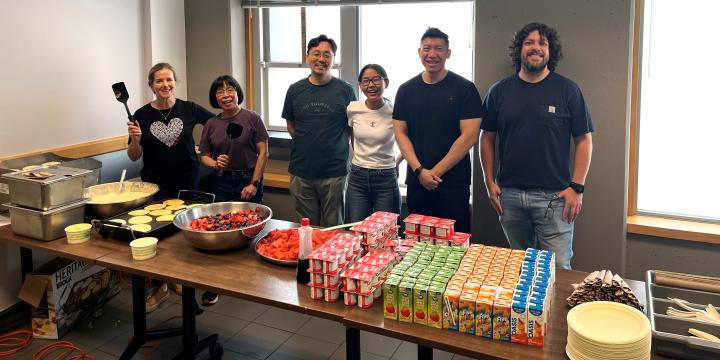
We hear a lot about self-care and the importance of taking ‘me time’ whenever possible. Whether it’s taking a bubble bath, curling up with a good book or going for a hike, we are encouraged to do something kind to ourselves. While self-care is important, it focuses more on “doing” and doesn’t necessarily address our deeper emotional needs. A more sustainable practice is self-compassion, the recognition that we are each deserving of the kindness, understanding and grace we want to show others.
Humans tend to be harsh self-critics. When someone else struggles with challenging circumstances or makes bad decisions, we will often try to understand and empathize with their situation, giving others the benefit of the doubt before we judge. Unfortunately, developing compassion for the self can be far more difficult. When we face hardships or make mistakes, we often react negatively and self-criticize, telling ourselves we aren’t good enough or replaying in our heads how we should’ve done better. Continued loathing and self-flagellation often put us in a vicious cycle, inhibiting our ability to move forward.
Dr. Kristin Neff, an expert in the field of self-compassion, suggests:
“Instead of mercilessly judging and criticizing yourself for various inadequacies or shortcomings, self-compassion means you are kind and understanding when confronted with personal failings – after all, who ever said you were supposed to be perfect?”
By confronting frustrations or harsh judgements of ourselves with a renewed lens that shows self-compassion, we will slowly realize that we are perfectly imperfect. Being human grants us space and freedom to make mistakes. This awareness can help us avoid a cycle of self-deprecating blame and shame, allowing us to be more self-aware and emotionally balanced. It provides a way to break free of those negative patterns and move towards healing and clarity. Self-compassion is not a goal, but a mindful practice we can each incorporate into our daily lives.
Here are some tips to start a practice of self-compassion:
1. Recognize a common humanity.
Being human means making mistakes. A simple recognition that you have the ability to reset and try again after failures can be very freeing. Remember that you are not alone. Everyone faces challenges. Everyone makes mistakes.
2. Gain perspective.
Try to look inwards with an outsiders perspective. It can be tough to view your own circumstances objectively, so ask yourself – what circumstances impacted your current situation? If someone you love was going through this, what would you tell them?
3. Acknowledge your feelings.
Self-compassion means being aware of your own suffering – your hurts and disappointments. A person who is suffering will often want to be left alone, but a practice of self-compassion prevents you to use your difficulties as reasons for isolation and disconnection.
4. Work it out.
There are many good meditations and exercises you can do to practice and grow in self-compassion. Combine these with a practice of self-care to ensure your well-being and growth for the future.
Jennifer Bateman is the Program Coordinator for YWCA Single Mother’s Support Services.
Self-compassion is one of the tools discussed during the weekly Single Mothers’ Support Groups. These peer support groups take place in 15 communities across Metro Vancouver, supporting single mothers to improve their lives and the lives of their families.
To learn more about our Single Mothers' Support Services or to join a Single Mothers group, please contact Joann McKinlay (Vancouver) at 604 895 5849 | jmckinlay@ywcavan.org or Jenn Bateman (Fraser Valley) at 604 619 5276 | jbateman@ywcavan.org

